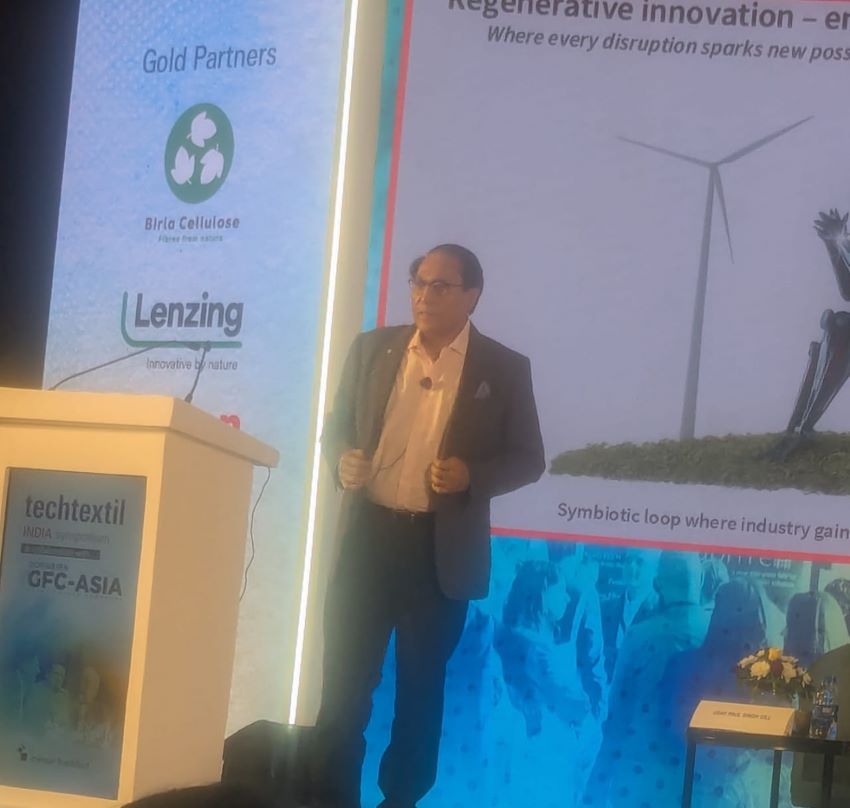South Korea has developed a fabric that is superbug resistant by using pigment from bacteria. This anti-bacterial fabric was developed using a natural bacterial pigment called Violacein, a violet pigment naturally made by bacteria found in nature, and is reported to have antibacterial, antiviral, antiprotozoal and anticancer effects.
Violacein, an indole derivative, is a violet pigment made by naturally occurring bacteria such as those belonging to the genus chromobacterium. Violacein has been reported to have antimicrobial and antiparasital properties in microbiology literature.
The bacterial pigment was coated to the fabric. The coated fabrics inhibit the growth of super bugs by 99.9 per cent. The work could be first of its kind to effectively utilise bacterial pigment as a coating agent on fabrics to impart antimicrobial properties.
The Korean team has developed prototype face masks and they are currently being put to use in a local hospital. This widespread use of antibiotics has resulted in the ongoing and ever-increasing prevalence of antibiotic-resistant bacteria also known as superbugs. Every year lakhs of patients die from a drug-resistant superbug.
This is the first case where an antibacterial fabric was produced using violacein. This fabric has the possibility to reduce the impact of super-bacterial infections.
South Korea develops superbug resistant fabrics
- 1
- 2
- 3
- 4
- 5
- 6
- 7
- 8
- 9
- 10
No A-Grades for Climate: What the fossil-free fashion scorecard reveals about in…
For years, the global fashion industry has promised a cleaner, greener future but 2025’s Fossil-Free Fashion Scorecard by STAND.earth offers... Read more
Wired Threads: How India’s textile backbone is powering the smart apparel future
India’s huge textile industry, long celebrated for its command over cotton and competitive manufacturing scale, is going through a foundational... Read more
The New Core Competency: How sustainability and advanced fabrics are driving Ind…
The SportTech Pavilion at Techtextil India, hosted by Concepts N Strategies, concluded with a unanimous declaration: for India to successfully... Read more
New EU import rules set to raise prices for Shein and Temu, boosting European re…
Europe’s fashion and textile scenario is on the verge of its most consequential structural shift in over a decade. The... Read more
Global apparel trade rebalances in 2025 as Europe rises, Asia stumbles: Wazir Ad…
As the global apparel economy enters the final quarter of 2025, trade flows across major markets reveal a sector facing... Read more
Tariffs, turbulence and tenacity, India’s textile sector finds new strength
India’s textile and apparel export sector is showing a remarkable capacity to adapt and thrive in one of the most... Read more
Future Fiber Demand and the Chemical Recycling Imperative: Global industry eyes …
The global textile industry is entering a period of exponential growth and profound technological transformation, according to key figures speaking... Read more
Regenerative innovation and the Human-Centric future of textiles
The global textile industry is at a crossroads where mere efficiency and profit no longer guarantee survival. This was the... Read more
Profit with Purpose: Inside the 35% margin boom in upcycled fashion wholesale
The secondhand wholesale sector, once seen as the back end of fashion, is now leading a quiet revolution, one that... Read more
Beyond CMT: Collaboration, not competition, is India’s new growth strategy
The journey for India’s activewear industry to move "Beyond CMT" (Cut, Make, Trim) and capture the global premium mandate is... Read more












